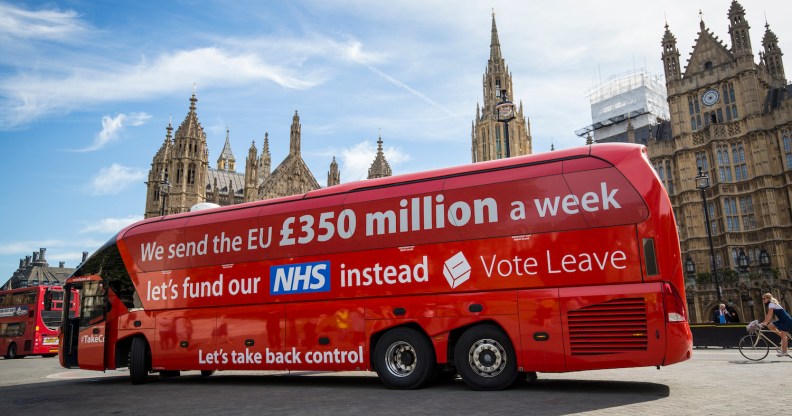Crown Prosecution Service ‘considering’ complaint that pro-Brexit campaigns misled voters

The Crown Prosecution Service (CPS) is considering a complaint that pro-Brexit campaigners misled voters in the run-up to the June referendum.
The director of public prosecutions is considering the complaint which refers to “undue influence” on the referendum campaign by Vote Leave and Leave.EU campaigns.
The 23 June vote resulted in 52 percent of voters choosing for Britain to leave the European Union and 48 percent opting for the remain option.
According to the Guardian, despite the usual need for the CPS to have a police complaint before it considers a case, under the 1983 Representation of the People Act, the director of public prosecutions can consider cases referred direction to her office of election offences.
“We can confirm that this letter has been received and we are currently considering its content,” said a CPS spokesperson.
Electoral law defines “undue influence” as corruption which can include “a fraudulent device or contrivance” to “impede or prevent or intend to impede or prevent the free exercise of the franchise”.
The Brexit case is compared in evidence to a 1992 case where Lib Dem members produced a leaflet titled “Labour News”, which was deemed to have been an attempt to mislead voters as it included quotes from Labour politicians.
This latest challenge to Brexit campaigners comes from an independent group. The effort is being led by Professor Bob Watt from the University of Buckingham.
Examples of where Professor Watt and the group accuse pro-Brexit campaigners of continuing “to make assertions of fact that were knowingly misleading”, includes the claim that the EU costs the UK £350,000,000 a week.
The case also challenges assertions that pro-Brexit leaflets suggested that Nissan and Unilever supported Brexit, and posters which read that “Turkey is joining the EU”.
Another piece of literature being challenged read that “the UK has no border controls whilst in the EU”, despite that billions of pounds are spent each year at the UK Border Agency.
The High Court last week ruled that the UK government can only trigger the process for leaving the European Union via a vote in Parliament, following the EU referendum earlier this year.
The news has not gone down well among Brexit campaigners, who had hoped that Prime Minister Theresa May would be able to use executive power to make the decision without consulting MPs, who oppose plans for a ‘Hard Brexit’.

